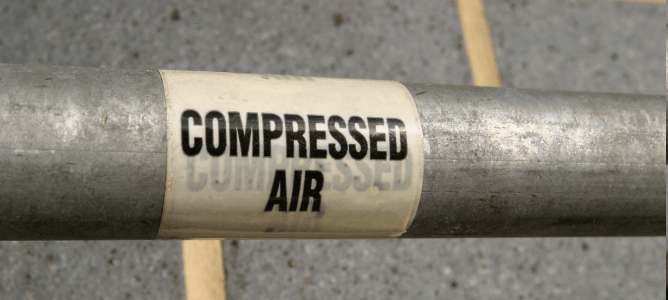
Understanding the Risks & Dangers of Compressed Air
Compressed air is a versatile utility widely used across various industries for its convenience and flexibility. However, despite its usefulness, compressed air can pose significant risks and dangers if not handled properly.
The Versatility of Compressed Air
Compressed air is utilized in diverse industrial applications, from powering pneumatic tools and machinery to cleaning operations and conveying materials. Its ability to generate significant force makes it indispensable in manufacturing, automotive, construction, and many other sectors.
Common Risks and Hazards of Compressed Air
Compressed air systems, while highly beneficial across industries, require careful management due to inherent risks that can lead to accidents and health hazards:
1. Airborne Particles and Contaminants
Compressed air often contains contaminants like oil, water, and solid particles. When inhaled or in contact with sensitive equipment, these contaminants can pose serious health risks. Inhalation of oil or particles may result in respiratory issues, while water can cause corrosion in machinery, affecting its efficiency and lifespan.
2. High Pressure Accidents
The significant pressures involved in compressed air systems make them potentially hazardous. Without proper regulation or if safety devices fail, the release of high-pressure air can cause severe injuries. This includes cuts, bruises, and even more severe conditions if air enters the bloodstream through breaks in the skin, potentially leading to embolism and other life-threatening complications.
3. Noise Levels
Operations involving compressed air often generate high levels of noise from compressors and pneumatic tools. Prolonged exposure to such noise can lead to hearing loss and other auditory issues among workers. To mitigate these risks, employees should use appropriate hearing protection devices, such as earmuffs or earplugs, particularly in environments where noise levels exceed safe decibel limits.
4. Blowback and Projectile Hazards
Improper use of compressed air for tasks like cleaning or blowing can result in blowback of debris or projectiles. Operators or nearby workers may sustain eye injuries, cuts, or abrasions if struck by dislodged particles propelled by compressed air. Implementing safe practices and proper training on handling compressed air equipment can significantly reduce the likelihood of such incidents.

Safety Measures to Mitigate Risks
Ensuring the safe operation of industrial equipment requires implementing air compressor safety guidelines:
1. Training and Education
Properly train personnel on the safe handling, operation, and maintenance of compressed air systems. This includes educating employees about the risks associated with misuse, such as high-pressure accidents and contaminants. Emphasize the importance of adhering to safety protocols and procedures to prevent accidents and injuries.
2. Personal Protective Equipment (PPE)
Provide appropriate PPE to employees working with or around compressed air systems. This should include:
- Safety Glasses or Goggles: Essential for protecting the eyes from airborne particles, debris, or any potential splashes that may occur during maintenance, operation, or when handling compressed air hoses.
- Hearing Protection: Due to the high noise levels generated by industrial air compressors, especially during operation, wearing earplugs or earmuffs is crucial to prevent noise-induced hearing loss or other auditory issues.
- Gloves: Protect hands from cuts, abrasions, and potential pinch points when handling hoses, fittings, or performing maintenance tasks on the compressor or associated equipment.
- Respiratory Protection: Depending on the environment and the potential for airborne contaminants, respiratory protection such as dust masks or respirators may be necessary to prevent inhalation of particles or vapors.
- Safety Footwear: Sturdy, closed-toe shoes or boots with slip-resistant soles are recommended to protect against potential hazards such as dropped tools, compressed air lines, or other equipment in the workspace.
- Clothing: Wear appropriate clothing that covers the body to protect against abrasions and exposure to moving parts or potential splashes from oils or lubricants used in the compressor system.
- Hard Hat: In environments where there is a risk of falling objects or overhead hazards, wearing a hard hat is essential to protect the head from impact injuries.
- Face Shields or Respirators: When performing tasks that involve potential exposure to high-pressure air streams, face shields or respirators may be required to protect against blowback or other hazards.
3. Regular Maintenance
Schedule routine maintenance and inspections of compressed air equipment to ensure optimal performance and safety. Regular checks help detect and address potential issues such as leaks, pressure fluctuations, and equipment malfunctions promptly. By conducting proactive maintenance, businesses can minimize downtime, prevent accidents, and prolong the lifespan of their compressed air systems.
4. Pressure Regulation
Utilize pressure regulators and relief valves to maintain safe operating pressures within the system. Pressure regulation helps prevent over-pressurization accidents, which can lead to equipment failures, leaks, or catastrophic failures. Regularly calibrate and inspect pressure control devices to ensure they function correctly and maintain consistent pressure levels throughout operations.
While compressed air offers numerous benefits in industrial applications, it is crucial to recognize and address the associated risks proactively. By implementing proper safety measures, providing adequate training, and maintaining equipment regularly, businesses can harness the benefits of compressed air while safeguarding the well-being of their workforce and protecting operational efficiency.
Power Up Your Operations with NiGen’s Air Compressors
For expert advice on optimizing your compressed air systems and ensuring safety compliance, contact NiGen today. Our team is dedicated to providing reliable nitrogen solutions and comprehensive support to enhance your industrial operations.
Stay informed and stay safe with NiGen’s insights into industrial safety and efficiency. Check out our blog and contact our team today to learn more!
